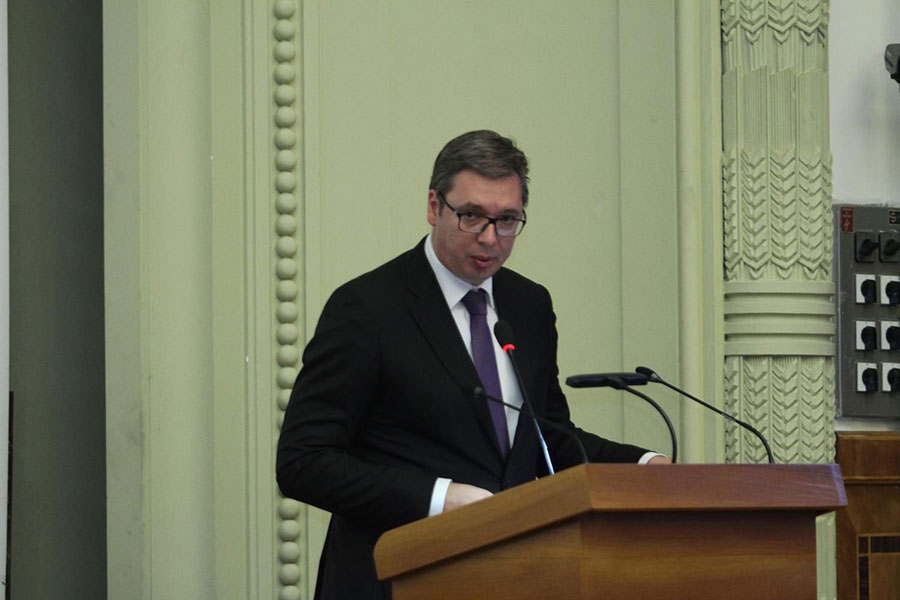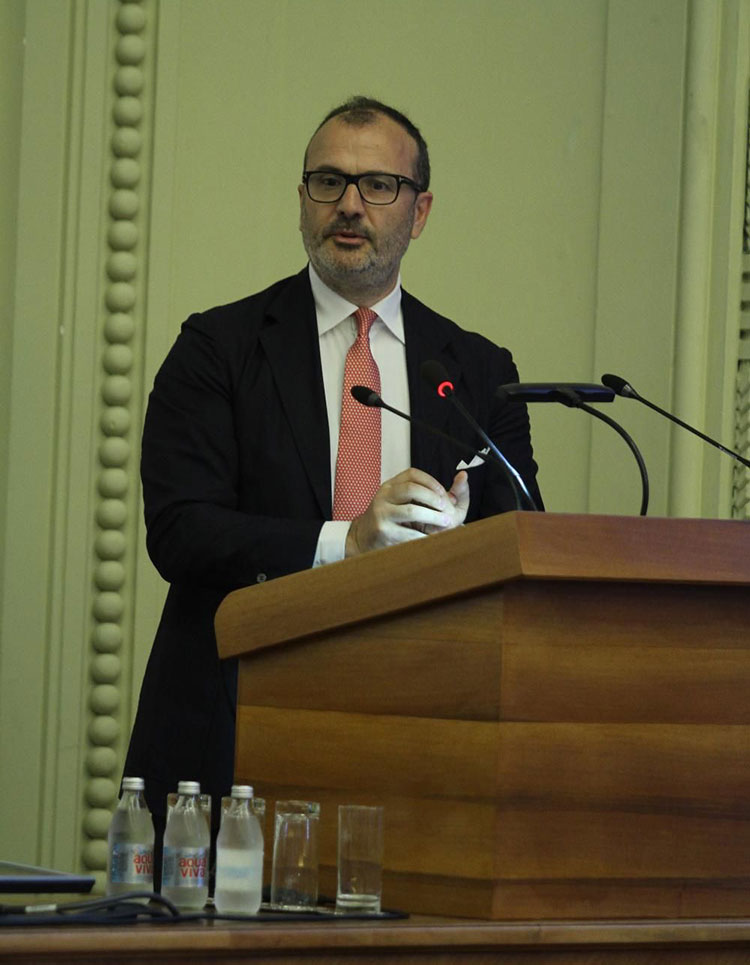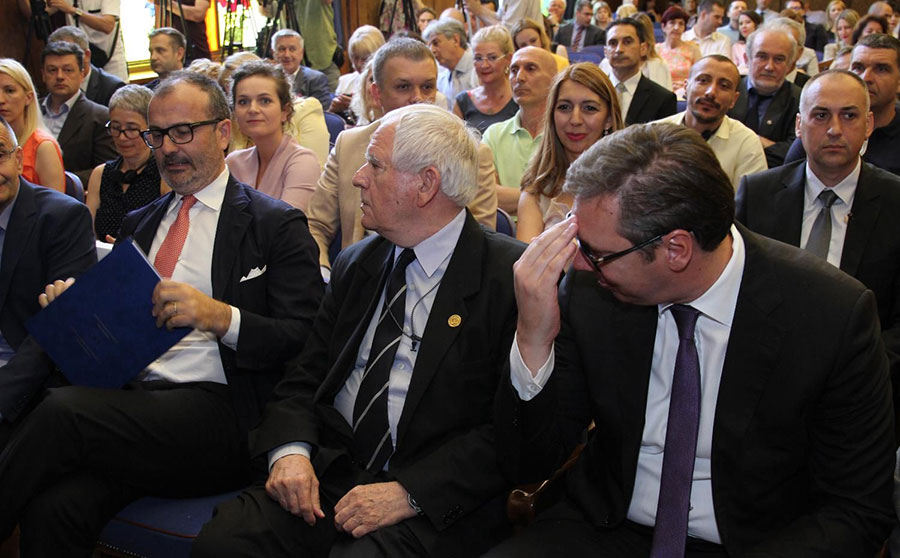Serbian President Aleksandar Vucic said that Serbia was in great need of whistle-blowers, the people who reveal corruption cases, adding that the country would alter its stance towards them because, as he put it, doing so is important for the progress of the country.
Opening the international conference “Loud Whistle: Whistle-blowers and journalists against corruption,” organised within a project co-funded by the EU, President Vucic said that “corruption is a serious disease, a great menace and a genuine scourge of our time, which is why we very much need whistle-blowers.“
He said he was happy that Serbia began enforcing the Law on the Protection of Whistle-blowers three years ago, adding that Serbia is a regional leader in many areas.
 He pointed to a good practice of offering certified training for judicial staff on the subject, adding that 800 judges, 100 public prosecutors and 100 attorneys have already undergone the training. The results are already visible, he said.
He pointed to a good practice of offering certified training for judicial staff on the subject, adding that 800 judges, 100 public prosecutors and 100 attorneys have already undergone the training. The results are already visible, he said.
“I believe justice is what our society needs most,” Vucic said.
Describing the Law on the Protection of Whistle-blowers as a good piece of legislation, Vucic said that one can say that the area was dealt with “relatively well”. What we need is a mind-set change, we need to be more self-critical and look ahead, he said.
Fabrizi: Fight against corruption key element of EU enlargement
The Head of the EU Delegation to Serbia Sem Fabrizi said that comprehensive fight against corruption requires transparency from public bodies and institutions, adding that in its latest Report, the EU has pointed to both progress in that area and the work that remains to be done.
 “The EU is your ally in this business. We are here and we will continue to support Serbia in reaching its goals,” Fabrizi said, announcing fresh EU support to the tune of EUR5 million for civil society in support of fight against corruption.
“The EU is your ally in this business. We are here and we will continue to support Serbia in reaching its goals,” Fabrizi said, announcing fresh EU support to the tune of EUR5 million for civil society in support of fight against corruption.
At the conference dedicated to importance of whistle-blowers hosted by the SASA, Fabrizi described the fight against corruption as one of Serbia’s top priorities and a key element of the EU enlargement process.
He said he was happy to see Serbia on the right track, describing the Law on the Protection of Whistle-blowers – adopted a couple of years ago – as excellent.
Noting that one of the Chapter 23 recommendations concerns fight against corruption, Fabrizi said that taking a partial approach to the issue is not an option, adding that zero tolerance is needed to cure “this cancer of the system.”
“Unless the entire system responds, the corruption will find its way through. All institutions must work hand in hand. If Serbia seeks EU membership, it needs to take a single, coherent approach,” Fabrizi said.
He warned that the lack of transparency and public control could lead to a conflict of interests, which can in turn have an adverse effect on the economy.
According to him, the system should ensure protection for investigative journalists and whistle-blowers and allow them to point to faults in the society.
Fabrizi said that justice played a key role in protecting whistle-blowers, adding that while combatting corruption, it is important not to limit the freedom of press.
He concluded by saying that if Serbia makes every effort to fight against corruption, it would lead to internal reform, something the EU is willing to support.
Ex Head of Belgrade emergency medical services Borko Josifovski shared his own experience during the conference, saying that once he had revealed the conspiracy between the doctors of the emergency medical services and undertakers, he was deposed and, as he put it, “named and shamed.”
He said he was called a lunatic and a charlatan.
The President of the Supreme Court of Cassation Dragomir Milojevic said that in the past three years there have been 568 whistle-blower protection-related cases. 497 have been solved so far, he added.
When it comes to provisional measures taken prior to dispute, Milojevic said 79 measures have been taken, with only one remaining unsettled.
He said that the National Anti-Corruption Strategy (2013-2018) and the pertaining Action Plan envisage putting in place the efficient and effective protection of persons who report suspected corrupt conduct, i.e. the whistle-blowers.




